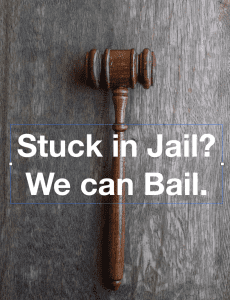A person cannot be kept indefinitely in the United States without bail being set or a hearing being conducted. How long may an individual be kept without a bond? You are entitled to a bail hearing within 24 hours in most states. In other areas, however, you may be required to wait up to 72 hours following your arrest.
If you have not had a bail hearing within 72 hours, you should see a lawyer who can answer your questions about the procedure. To preserve your rights, you may be able to have a friend or family member contact local legal firms that defend clients in criminal matters. It is essential to locate a trustworthy attorney with whom you can create a solid attorney-client relationship. A bail bond agency may be able to assist you in posting bail if you cannot afford to pay the whole sum.
- Understanding Bail
A defendant deposits security from their account or may opt to hire bail bond services such as experts who work at a bail bonds Bakersfield office. The payment serves two purposes: It provides the defendant liberty (at least until the trial date) and discourages the defendant from fleeing the jurisdiction (or the trial). If the offender fails to appear at the scheduled time, the money or property is forfeited, and the defendant is liable to arrest again.
- Actions Following the Arrest
After an arrest, there is some legal ambiguity. Law enforcement has taken you into custody, but you have not yet been officially charged with a crime. Consequently, you must stay in detention long while awaiting charges. You must be freed if you have not been charged within the allotted period. During your wait, you will likely be taken before a magistrate judge who will decide the amount of your bail, if any. This varies from an arraignment in that you are officially charged with a crime and obliged to enter a plea at an arraignment hearing. This is also the time when a trial date is determined, and you will stay incarcerated until then.

If you are not charged during the hold period, you will not be prosecuted, but you may be forced to post bond and pay the bail sum. You should call your defense attorney as soon as possible following your arrest to ensure that you have sufficient counsel from the beginning of the criminal justice procedure.
- Variables that Determine the Length of Your Detention
How long you may be kept without being charged depends on several variables. The U.S. Supreme Court contains safeguards for defendants, preventing them from serving lengthy prison terms before conviction.
Having the right to a speedy trial also reduces the time the accused must bear the tension and notoriety of an upcoming trial. These constraints also mitigate the potential harm a delay may have on the defendant’s capacity to provide a case.
1. Violation of the right to a speedy trial.
2. The Determination to Charge
If you are arrested, a prosecutor will assess your case before deciding on their own what charges to pursue. A prosecutor is not bound by the original choice to file charges; after further evidence is gathered, the prosecutor may alter the charges.
If the prosecutor fails to file charges within the allotted period, the police must release you. Failure to comply might be a breach of your rights.
- Reason for the Time Constraint
The goal of suspending a time restriction after an arrest requires the police and district attorney’s office to determine if there is sufficient evidence to charge you with a crime officially. Without restrictions, individuals might be detained forever, allowing law enforcement to distort the evidence and find loopholes to charge you with a crime. Time limitations on detention are advantageous for detained individuals since it shields them from undue delay.
A person arrested in the United States has the right to be freed on bail or to have a bond hearing within 24 to 72 hours. In most instances, a bond is established, and the defendant either pays the total amount or agrees with a bail bond service to pay a percentage in exchange for release.
There are instances, however, in which the court rejects bail. In these circumstances, the defendant is often accused of a particularly severe offense or is a habitual offender. The court is concerned that they may escape the jurisdiction or damage the alleged victim or another individual.
If you, a family member, or a friend is arrested, it is imperative that you know your rights and get legal counsel.


Join the conversation!